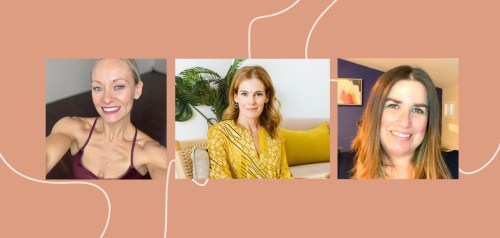To Diffuse Stress About the ‘Biological Clock’, Fertility Education—Way Beyond Contraception—Is Essential
Early fertility education (beyond merely contraception) is essential to mitigating stress and anxiety about exactly when and how to conceive.

If there’s anything that’s bound to trigger anxiety about future life plans and goals, it’s the analogy of a ticking biological clock representative of a so-called pregnancy window inching closer to a final deadline with each passing day. While for people with a vagina, there is a biological timeframe for being able to conceive and carry a child, information about the myriad options for doing so is currently not a big enough part of the discussion. In fact, research backs up that access to fertility education (and the earlier on in life, the better) is an empowering way to take your conception journey into your own hands.
Experts in This Article
Dr. Brower is board certified in Obstetrics and Gynecology and Reproductive Endocrinology and Infertility. She is a fertility specialist at the Los Angeles location of Kindbody. Her areas of expertise include infertility, in vitro fertilization, fertility preservation, oocyte cryopreservation, recurrent pregnancy loss and PCOS.
licensed therapist and author of True You: A Step-by-Step Guide to Conquering Your Quarter-Life Crisis
And that’s because there are, in fact, many ways to go about conceiving. “If you’re at this point in life where you’re thinking, I want to have a child, but I don’t have a partner, you can have the child, and the partner will follow,” says licensed psychotherapist and board-certified life coach Tess Brigham, MFT, in the most recent episode of The Well+Good Podcast, which focuses on fertility and life timelines in general. “And the same goes for if you know you want to have children that have children of their own, and you’re looking to get started on the journey sooner—or, if you’re interested in waiting a bit longer. You have to consider the part of that timeline that you do have control over.”
Listen to the full episode here:
In order to make a choice that works for you, however, it’s important to be informed about the fertility journey from a biological standpoint—which is where the fertility education component comes into play.
“There’s this incredible absence of education in terms of what we give young women about how reproduction works in their bodies, about their ovaries, about their follicles, and even simply about periods and ovulation,” says reproductive endocrinologist and OB/GYN Meredith Brower, MD, a fertility specialist at Kindbody, in the podcast. “For example, I ask women, ‘Did you know that the reason you get a period is because you’ve ovulated two weeks prior, and often, when you’re not getting a period, it’s because you’re not ovulating?’”

These simple mechanics of ovarian physiology and reproduction are left out of the conversation, particularly in terms of sexual education in schools, which centers almost entirely around contraception. “Women tend to hear about pregnancy prevention and the different contraceptives that they have available to them, but there’s a lot of misinformation there because it’s very fear-based,” says Dr. Brower.
“Preventing pregnancy and planning pregnancy are two sides of the same coin.” —Meredith Brower, MD
The overarching idea is that an absence of contraception will lead to pregnancy, but that’s not really the whole story—which is something that many people learn only as they begin actively trying to conceive and run into roadblocks. “Preventing pregnancy and planning pregnancy are two sides of the same coin,” says Dr. Brower. “All the things that you do to prevent pregnancy revolve around preventing ovulation, or knowing when you’re ovulating, and, for example, avoiding sex during that time. So with planning pregnancy, it’s about using that same moment and understanding that same physiological process to take advantage of it in the other way.”
But because many people trying to conceive come to this full understanding once their biological clock has been ticking for a while (due to lacking fertility education), the lack of foresight has an impact on whether they can actually plan their family trajectory in the way that they’d like. “Right up until you get to a certain age, people just want you to focus on not getting pregnant. And then they give you this little window of time where they’re going to put a ton of pressure on you to do so—from the age of, say, 28 to 32,” says Dr. Brower, noting that, of course, this societal pressure need not factor into your ultimate decision whatsoever.
Comprehensive fertility education puts more options on the table—whether that looks like planning for a family sooner or later than you’d once envisioned, tapping options like egg-freezing or embryo-freezing to extend your biological timeline (for which Dr. Brower notes that the technologies have vastly improved in the past decade), or even simply taking action to optimize your conception with informed tracking of your cycle. Because ultimately, the only life timeline, with regards to fertility or otherwise, is the one you set for yourself.
Listen above, and subscribe to The Well+Good Podcast on Apple, Spotify, or wherever you get your podcasts.
Sign Up for Our Daily Newsletter
Get all the latest in wellness, trends, food, fitness, beauty, and more delivered right to your inbox.
Got it, you've been added to our email list.










